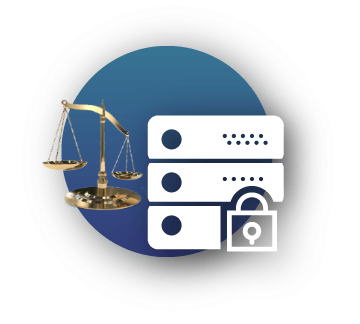Preparing for Death in the Digital Age
by Memphis Attorney Christina Burdette
While we typically prepare for our inevitable death by writing a last will and testament, we also need to decide what will happen to our online life after death. What can be done to prepare for it, and what can we do to help if someone close to us passes away?
Handling Your Accounts
1. Appoint a digital executor
Your family or closest friends will be able to manage your online presence and shut down your accounts easily if they have your passwords. Question is, are you really willing to compromise your privacy and security? Even if they're not the type to snoop on you, there's always a chance that the security details you give out might get lost, stolen or hacked. Rather than giving your loved ones copies of your usernames and passwords, you can talk to your lawyer about appointing a digital executor who'll get all of them when the unfortunate does happen. Unlike the executor of your will, a digital executor is not a court appointed fiduciary. A digital executor is someone you name in your will to oversee the wind-down of your digital life. Specific directions will need to be given to this individual in order to carry out your wishes.2. Use a password aggregator/service that you can update throughout your life, or keep a handwritten list in a fireproof safe.
It's hard keeping a login list up to date if it's with a lawyer. Instead, consider signing up for a secure service that lets you tweak it when you need to. That way, your attorney will only need to possess a master password to give your digital executor. You could choose a password manager like LastPass, sign up for a separate cloud storage account or look up one of the services that offer to keep your credentials under virtual lock and key for this very purpose -- just make sure it can be trusted.3. Check to see if the website or service you're using has a feature that closes your accounts for you.
Google’s Inactive Account Manager is probably the best example. This service, which can be used to determine the fate of your Google+, Blogger, Drive, Gmail, Picasa Web Albums, Google Voice and YouTube accounts, prompts you to a set a "deadline" for yourself. If the date you've specified is approaching and you haven't accessed your account for quite some time, it nudges you with a text message. Be careful - Past the deadline, the manager will share your photos, video clips or emails to the contacts you've specified (though it can also delete your accounts) if it doesn't get word back that you've just been too busy to log in.Handling A Loved One’s Accounts
Social networks only made it big fairly recently, and Google didn't own most of people's virtual lives back in the day. Many people who've already passed likely never left instructions on what to do with their online presence or shared their passwords with friends and family. What about specific social networks?1. Facebook
You have two choices when it comes to Facebook: You can either ask the company to delete your loved one's account, or have your relative's profile “memorialized." When an account is memorialized, nobody will be able to access it anymore, though friends can still post to the page's wall whenever they want. Friends of those who've passed can now request a “Look Back” video of the deceased. You can only apply for an account's memorialization if you can verify proof of death and that you're a relative of the deceased. The process can't be undone, so keep that in mind if someone in your family likes logging into that account as a way to cope.2. Google
If your relative never had the chance to use the Inactive Account Manager, you still might be able to get into their account if you go through Google's verification process. If you are able to gain access into their account, you'll get its emails, YouTube videos, Google+, and Google Play profile.3. Twitter, Instagram and LinkedIn
These networks, unfortunately, don't have an option similar to Facebook's memorialization. You'll have no choice but to contact the company directly along with a copy of your identification and the family member’s death certificate in order to shut down an account.4. Outlook and Yahoo Mail
Unlike Google, which at least promises to look into giving you the right to log into your loved ones' emails, Microsoft and Yahoo firmly state that they will not share anyone's credentials, though they will close a user's account upon request. Microsoft does have a Next of Kin service, though, which sends you a copy of all your relative's emails saved to a DVD if you can provide proof of kinship and proof of your loved one's death.5. Dropbox
This should be easy to deal with, so long as your relative left behind a computer linked to the cloud storage service. In the event that the option doesn't exist, you can ask the company to let you into the account, though Dropbox doesn't guarantee approval.6. Apple ID/iCloud
Apple, sadly, has a "No Right of Survivorship" clause included in its Terms of Service, according to which accounts are non-transferable, and all you can do is close the account of someone who has passed away by contacting iCloud support.Be proactive.
Your accounts should be closed upon your death and you should take the initiative now to see that this will be done. Doing what you can while you can still decide for yourself makes it easier for anyone you leave behind. As you can see, it won't be easy for relatives to request entry to your accounts or to ask for their deletion. By making sure your accounts are deleted instead of letting them languish away, you're not only giving your family closure, you're also preventing identity thieves from impersonating you long after you're gone.Click the image below to access our Secure Client Portal

Further reading if you are in Memphis and contemplating legal matter.
Tennessee Divorce InformationTennessee Divorce Mediation Process
Tennessee Child Support Law
Tennessee Child Adoption Law
Tennessee Business Law
Tennessee Tax Law
Tennessee Estate Law
Hire an Experienced Memphis Attorney
At The Burdette Law Firm we are competent, experienced and caring lawyers and parents ourselves, as well as being versed in business, tax and estate matters. When dealing with family law and other matters, we will provide excellent legal advice. We give our clients a great deal of information on the law so they can have the proper understanding to make important legal decisions. Family law in particular is an emotional process, and we always strive to ease the stress during this difficult situation.Contact our attorneys for more information
After reviewing the above if you have questions and need our assistance in a legal matter, please call us at (901) 756-7878 or use the contact form to the right.


